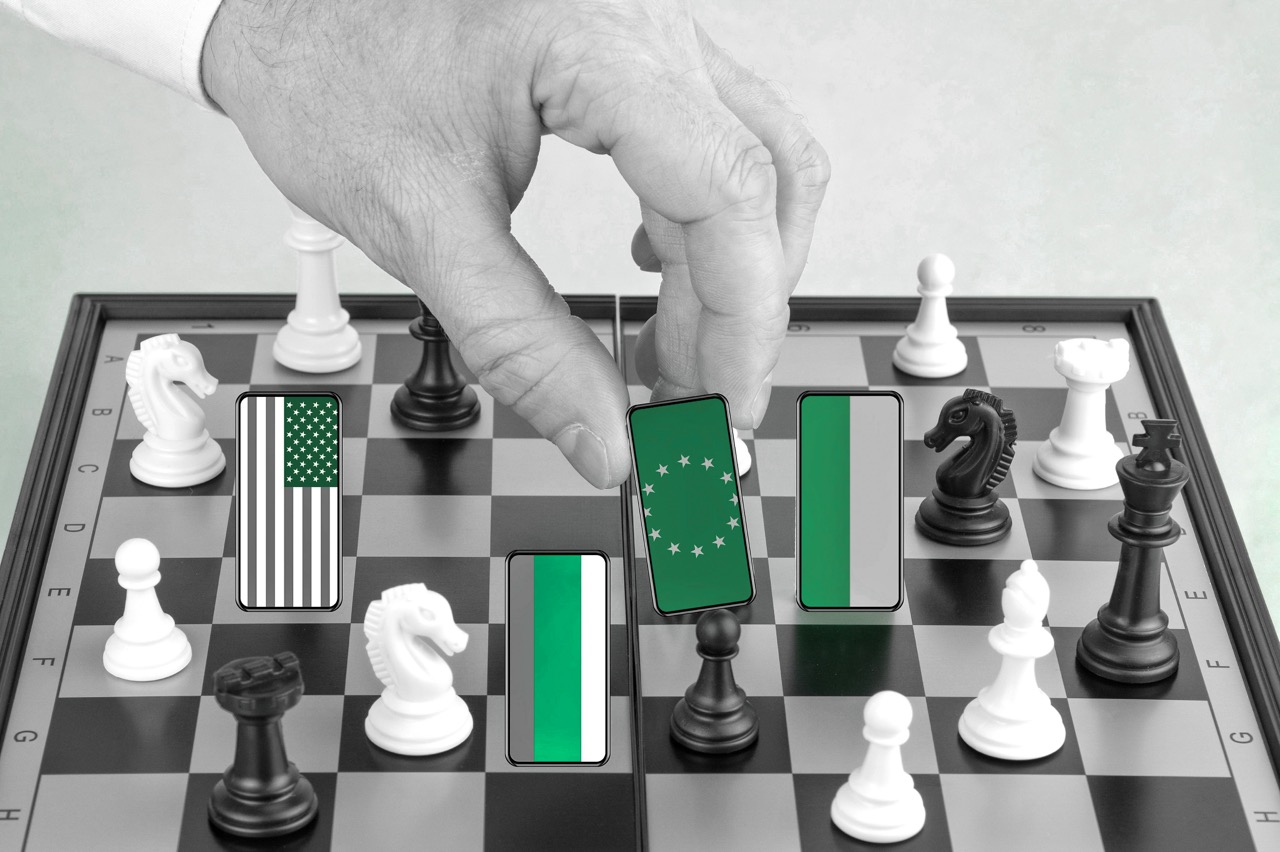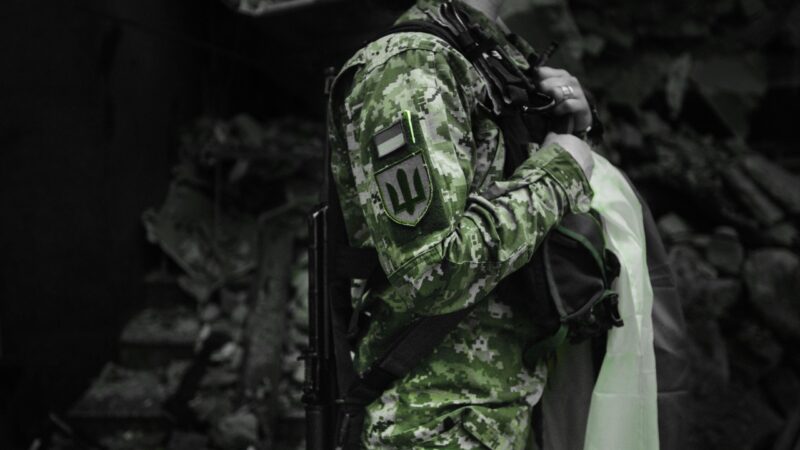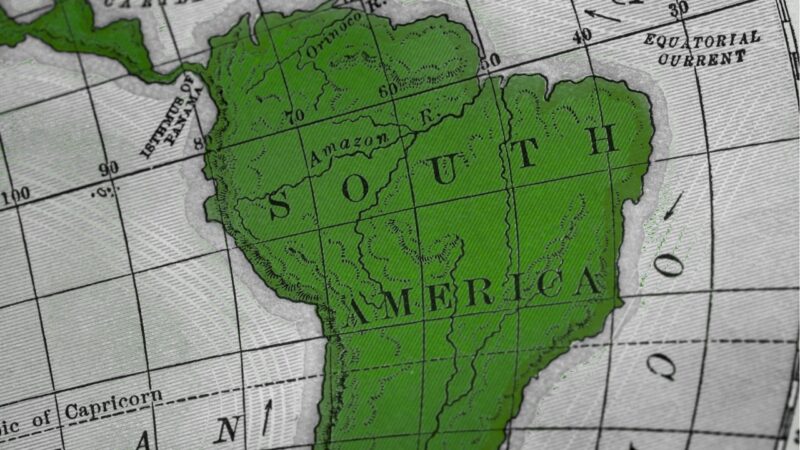Interview with Mitchell Orenstein | Time is on Ukraine’s side in this war

Oleksandr Pankieiev: Russia’s decision to start its escalated invasion of Ukraine in 2022 was heavily determined by its calculations regarding Europe’s dependence on its energy resources and presumed political influence in some EU countries. Nearing a full two years since the full-scale invasion, what is your evaluation of the EU’s efforts to reduce its dependence on Russia in energy and other sectors?
Mitchell Orenstein: I believe that the European Union has done a very good job of reducing dependence on Russian energy. The REpowerEU program, a medium- and long-term plan enacted in May 2022, had several successful elements. One was to diversify gas sources: build LNG terminals, reorient pipelines, and enable gas to come from different suppliers. Slapping a price cap on Russian oil was also instrumental. In the first winter, Europe also reduced energy usage by 15% or even 20% for some countries.
The medium-term objective is to increase reliance on renewable sources, which will significantly impact Europe. The expectation is to have 45% of overall energy through renewables by 2030, resulting in a new era for Europe where it can be more self-sufficient in energy.
All of these ideas were based on a longstanding history of cooperation on energy in Europe, since about 2006 or 2009. That’s why they were able to move so quickly in 2022, and I believe that prolonged the war.
Ultimately, starving Europe of fuel was a Russian gambit to weaken Western support for Ukraine. Russia has failed to achieve its objectives on the battlefield in Ukraine. It was unable to capture Kyiv in three days, conquer the entire country, or achieve the very broad goals that Putin has made. Instead, Russia is now focused on holding on to the 17.5% of territory that it currently occupies and moving marginally beyond that. Therefore, Russia has used various gambits to try to shorten the war. Most of these can be put under the category of convincing the West that it doesn’t really want to fight this war and persuading the West to stop supporting Ukraine and sue for peace.
I think that Russia expected that the West would give way because it did so several times before. We can look at the Minsk agreements in that light. Russia grabbed some territory. Europe wasn’t interested in fighting, so Russia convinced European leaders to put a fig leaf over these conquests and reach some sort of agreement to stop fighting, while Russia’s territorial gains remain intact. The same thing happened in Georgia in 2008. Nicolas Sarkozy came to represent the European Union and pushed through the agreement that there would be no more fighting, although it didn’t solve Georgia’s problems. Russia thought that more or less the same deal would be accepted by the West and underestimated the extent to which Western countries were shocked by Russia’s full-scale invasion in 2022. This time, the reaction has been very different. Europe has become a very strong partner for Ukraine and has committed to taking Ukraine into the European Union. That’s a really important step.
Essentially, Russia’s gambit last winter had been to starve Europe of fuel and thus force Europe to realize that it’s going to hurt its own economy, sue for peace, and say, “Ukraine, stop fighting, let’s freeze this war.” Europe, to its credit, did not do that. The EU members fought back and effectively won the gas war in Europe. This winter, as I understand, they are storing a lot of gas, which will enable them to get through it. The result of all that is that the war got lengthened. Russia’s gambit failed: from the beginning it wanted a quick end to the war, and that has been denied.
Now we’re in a situation where Russia has another gambit to win—this time in the US Congress. Russia is looking to convince some legislators somehow, primarily Republican ones, that they love Putin or that they’re getting some benefit from Russia winning—that they don’t like Ukraine—to hold up some deal for financing Ukraine, and then eventually Ukraine will have to sue for peace. We’ll see how far that gambit goes. I hear different things about it from DC. The latest I heard sounded optimistic that the US will eventually provide these funds.
In any case, Russia is continuing to deploy more gambits. Russia is arguably responsible for emflaming wars elsewhere today in order to force the US to sue for peace or to get distracted by those wars—for instance, the war in Gaza and the conflict with the Houthis. Destabilization of the Middle East is a strategy to increase the price of oil and harm competitors. But in any case, the gas gambit in Europe failed for Russia, and hopefully it was only another of several failed gambits to end the war.
Pankieiev: To what extent has the EU’s transition to alternative energy resources and the number of sanctions placed on Russia successfully reduced Russia’s ability to finance its war efforts in Ukraine? Can we say that enough has been done to reduce Russia’s capability to conduct its war in Ukraine?
Orenstein: Certainly not. The sanctions debate is complicated, because in any sanction situation some people always claim that the sanctions aren’t working and that we should drop them. Usually, those claims are made because somebody has some sort of financial or geopolitical interest. And it is very easy to downplay the extent to which sanctions are working. I’ve recently seen apparently convincing arguments on both sides. Some people are saying that the sanctions are being broken and that they’re very hard to enforce—that we’re doing a terrible job and the Russian economy is doing well. And then other reports that I also highly regard say that Russian industry is in a horrible state. There are blackouts in Moscow, and Putin is very worried about the economy and can’t pay for everything. There’s a possibility of social discontent. I suspect that the answer is probably a little bit of both. There might be some truth to both of these perspectives.
And then there’s a complicated question when assessing the effect of sanctions: What do we mean when we say the sanctions aren’t working? One answer is that Russia keeps on doing what it’s doing, so it’s obviously not affected by sanctions. And that’s often seen as a persuasive argument. But I would point out that military tactics also have not defeated Russia.
I see sanctions as an important tool. I think that on one hand, they’re symbolic in the sense of cutting Russia off from the global economy. On the other, they’re a very practical way of saying that we won’t pay for the war effort. But it’s clear that they are harming the Russian economy. I don’t think there’s any world in which you could really say that Russia has not been harmed—it has been harmed. Has Russia been harmed enough that it stops the war? No. However, the sanctions have substantially impacted arms production and Russia’s ability to prosecute the war. So, sanctions are an important tool that has made a difference.
Pankieiev: In one of your published texts, you say that the logic of sanctions is to increase the chances of a political and social reaction from within that would challenge Putin. Yevgeny Prigozhin’s mutiny ended with his assassination. Protests in Dagestan and Bashkortostan just a few days ago were immediately suppressed. What do you make of this? Do you see any real indications that Putin’s regime is indeed crumbling?
Orenstein: Right now, it does look like Putin is not facing any substantial challenges. But the thing about social unrest is that we don’t really know until it happens. In Russia, social change happens very suddenly after long periods of nothing much happening. It’s very hard to assess.
The sanctions are having an impact on Russia’s economy and output. One of the ways that sanctions work is by reducing the economic power of a country, reducing its resources, making it less able to fight the war, and particularly by reducing its arms industry—a lot of the sanctions are targeted against the arms industry. I think there’s a fair case to be made that Russia has not been able to produce as many weapons, or of as high a quality, and that sanctions have probably had a substantial impact.
But then there’s also the question whether sanctions make it more likely that average people will oppose the war? I think that under all these logics the answer is yes, eventually. The crux of the question is whether society and leadership are coming around to the position that this war isn’t really worth pursuing. Unfortunately, the weakness of that argument is that Putin seems ideologically, even messianically driven to subjugate Ukraine. It seems crazy that he invaded the country and thought he was going to win. Today, it feels like he’s backed into a corner and this is something he has to do for the purpose of his legacy. If he’s not thinking rationally and this is a mission he’s on, it becomes hard to imagine how he could change his mind. And how much social unrest would it take? In the Winter War of 1939/40 Russia lost about half a million troops, and at that point, Russia decided there was not much utility in fighting further. I don’t know if the same number would apply in Ukraine, but it may be.
It’s a conundrum to understand their strategy overall and when social unrest might occur. Both are hard to predict. But I do think that that is part of the rationale.
Pankieiev: Just a few days ago, Putin openly acknowledged that he is not planning to give up what he explicitly called “conquered territories.” In that case, what kind of peace is there going to be if he’s not going to give up those territories? That was the first time Putin was really explicit about the goals of his invasion.
Orenstein: It’s obviously an imperial mindset, which many of us have been discussing for a long time. It’s still striking to see the risks that Putin was willing to take, and the damage to people’s lives and property, in order to achieve some sort of goal, which he presents as messianic or religious in character.
Putin seems to have settled on projecting an image of himself as Russia’s saviour, who has to maintain Ukraine under Russian control and unite Belarus, Ukraine, and Russia.
Pankieiev: The United States have been one of the biggest supporters of Ukraine so far. Now the Republicans in Congress are blocking emergency funding for Ukraine. This year the US will also have presidential elections, and many pundits don’t exclude the possibility of Trump getting elected. What is your evaluation of the situation for Ukraine if the US steps out of the game?
Orenstein: That’s very hard to predict. Trump keeps saying, “Oh, I’ll solve this problem really quick,” and people assume that he means he’s going to betray Ukraine somehow or he’s going to pull out of NATO. I think that our experience with Trump’s presidential term was different, though. Trump definitely had some type of affinity with Russia: he apparently had real estate deals that he wanted to happen there; he never personally criticized Vladimir Putin, which was very strange; and he seemed grateful to Putin for supporting his election campaign. While direct collusion was not proven in the famous Mueller report, it was found that Russia made efforts to aid Trump’s campaign.
At the same time, Trump would argue—and did argue, and it is true—that he did more for Ukraine than Obama had done in terms of providing weapons. He provided the anti-tank missiles that Obama was afraid to provide, and his government was also strong on sanctions against Russia—all those claims are true.
How I understand Trump—and this is different from most people—is really grounded in my book The Lands in Between, which looks at “in-between–type” political actors, who want to have it both ways. They want to be “allied”: they want to gain benefits from Russia and gain benefits from the West at the same time. I do think that some trades and bargains were made with Russia. At the same time, I don’t think it would be fair to characterize Trump as a complete patsy to Russia or a complete ally of Russia. He also understood that his value as a broker in that relationship would be greater if the US was vigorously challenging Russia. Because if you’re not a problem to Russia, why would they pay you anything? Why would they help you out? They don’t expect to gain anything from you if you’re giving them everything they want. Ideally, these actors want to win resources from both sides.
This is not unique to Trump. It’s a game that’s played by some politicians in Ukraine, and it’s also probably played in all countries in Europe. You find a lot of politicians who are big NATO allies on the one hand, and on the other they are ready to make a deal with Russia easily.
So I think that Trump’s in that camp; as a result, he’s that in-between type of leader. We don’t know exactly what he would do. Even after the fact, it’s hard to know what he did in the 2016–20 period; it’s not 100% clear yet. And I’m not sure that we know enough to know exactly whether he would sell out of Ukraine or not.
Similarly, people are saying that he was ready to pull out of NATO. He does say that, but Trump often adds “unless NATO countries do X, Y, and Z.” He wants them to spend more money on defence—which would be rather positive for Ukraine overall. If Europe were spending more on defence, then Ukraine would be better defended.
Pankieiev: What kind of support does Ukraine need to win the war? And what kind of victory should it be?
Orenstein: The European Union has been very clear that it wants Ukraine to have 100% of its national territory controlled by Ukraine, and it wants Russia out. I think that is the objective for most people in Ukraine and in the West.
In terms of what type of support Ukraine needs, if I were more of a military strategist, I’d be looking at ways to move this beyond trench warfare and seek air superiority in the next stage. I think Ukraine has recently relied more on sabotage in the rear of the Russian lines, of knocking down supply lines. With the F16s arriving, the hope is that Ukraine can attain air superiority, at least in part of the country.
As for the other related question, I would be thinking about how to get around these lines. You could probably do that, but you’d have to go through Russia or the seas. What has been preventing getting around the lines is NATO’s concern that its weapons are not used to launch any attack on Russian territory. The West is concerned about starting World War III with Russia.
The West has placed constraints on what Ukraine can do and perhaps it does need to operate within those constraints. But if you want to win the war, you might want to actually change the constraints and find some way out of the situation. The key thing would probably be air and naval superiority, and degrading supply lines.
I mentioned earlier that the war getting prolonged has not helped Russia. Has it helped Ukraine? I don’t know. My intuition is that the longer this goes on, it’s not really Russia that has time on its side. I think that time is probably on the side of Ukraine in this war, as long as it has solid backing from its Western partners.





